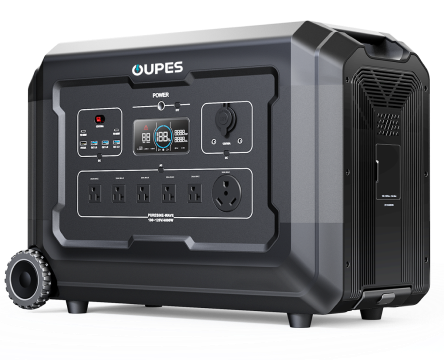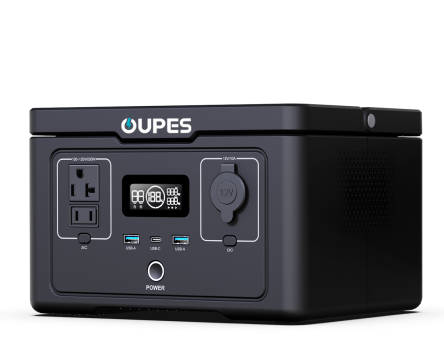
When preparing for outdoor adventures, camping trips, or emergency situations, having a reliable energy source is crucial. One device that has been gaining popularity for its convenience and sustainability is the solar generator. As more people embrace eco-friendly living and seek off-grid solutions, the question arises: What solar generator can power a refrigerator? If you’re thinking of using a solar generator for your refrigerator, you’ll need to understand the power requirements and how solar generators can help you stay powered up without relying on traditional energy sources. In this article, we will explore the key factors to consider when choosing a solar generator for your refrigerator, as well as the best models currently available on the market.
Whether you’re planning a road trip in an RV, a weekend camping getaway, or preparing for a natural disaster, having the ability to power a refrigerator with a solar generator can make all the difference. With the right setup, you can keep your food fresh, store medicines, or simply enjoy the comfort of having cold drinks and snacks. Let’s dive into the world of solar generators and how they can meet the energy needs of your refrigerator.
Understanding the Power Requirements of a Refrigerator
Before you can determine which solar generator can power a refrigerator, it's essential to understand how much energy your refrigerator uses. Refrigerators come in various sizes and types, each with different power consumption rates. The energy required to run a refrigerator depends on factors like the model, age, size, and efficiency of the appliance. On average, refrigerators consume between 100 and 800 watts per day, but it’s important to check the specific wattage of your refrigerator to determine the power requirements accurately.
The power consumption of a refrigerator can be broken down into two main components: the running watts and the startup watts. The running watts are the amount of power the refrigerator uses when it’s operating normally. This is the continuous power draw. The startup watts refer to the additional surge of power needed when the refrigerator’s compressor kicks in, which typically happens when the refrigerator starts or when the temperature inside changes. The startup wattage is higher than the running wattage, so a solar generator must be capable of handling both the running and surge watts of your refrigerator.
To calculate how much energy your solar generator will need to provide, you’ll need to know the refrigerator’s wattage and how many hours it runs per day. For instance, if your refrigerator consumes 200 watts continuously and runs for 24 hours, it will use 4.8 kilowatt-hours (kWh) per day. Understanding these power needs will help you choose the right solar generator to ensure you can operate your refrigerator without interruption. Additionally, it’s important to factor in the amount of sunlight available for recharging your solar generator, as solar power depends on weather conditions and location.
Choosing the Right Solar Generator for Your Refrigerator
Once you have a good understanding of your refrigerator’s power requirements, the next step is to choose the right solar generator. Not all solar generators are created equal, and the right choice will depend on the size of your refrigerator, how much power you need, and how long you want to run it. When evaluating solar generators for refrigerators, there are several factors to consider, including battery capacity, inverter size, and the number of outlets available.
The battery capacity of a solar generator is measured in watt-hours (Wh) and determines how much energy the generator can store. A larger battery capacity allows the generator to run your refrigerator for a longer period without needing to recharge. The inverter size is equally important, as it determines the maximum amount of power that can be drawn from the solar generator at any given time. Since refrigerators require both continuous and surge power, you’ll want to ensure that the solar generator’s inverter can handle both the running and startup watts of your appliance.
Another feature to look for is the number of outlets. Some solar generators have multiple outlets that can power several devices at once, including your refrigerator, lights, and other electronics. This feature is particularly useful if you plan to use the generator for more than just your refrigerator. Additionally, consider whether the solar generator can be charged with solar panels, as this will allow you to recharge the generator during the day, especially if you're using it in a remote location where access to electricity is limited.
Top Solar Generators for Powering a Refrigerator
Now that we have discussed the key factors to consider, let's take a look at some of the best solar generators for powering a refrigerator. These models are known for their reliability, efficiency, and ability to meet the typical power needs of a refrigerator.
First, the OUPES Mega 2 Power Station is a great option, equipped with a 2048Wh battery and a 2500W inverter. This solar generator can power a medium-sized refrigerator for several hours and can even handle the surge power required when the refrigerator’s compressor starts. The OUPES Mega 2 also features multiple ports, including AC, USB, and DC outlets, allowing it to power not only the refrigerator but also other devices. It can be charged using solar panels, a wall outlet, or a car charger, offering flexible charging options.
If you need more power, the OUPES Mega 3 Home Backup & Portable Power Station is another excellent choice. It comes with a 3072Wh battery and a 3600W inverter, providing enough power to run larger refrigerators. This unit is not only powerful but also charges efficiently via solar panels, making it ideal for users who need to run a refrigerator for longer periods. The OUPES Mega 3 also offers multiple outlets, allowing you to power several devices at once.
For users requiring even more power, the OUPES Mega 5 Home Backup & Portable Power Station is one of the top choices, featuring a 5040Wh battery and a 4000W inverter. Whether you need long-lasting power or to run higher-wattage devices, this solar generator can handle it with ease. The OUPES Mega 5 is suitable for homes or places that need to power multiple large devices, offering powerful support and can be charged using solar panels to ensure a reliable power supply.
Finally, the OUPES Titan 3 Power Station is also a highly powerful option, equipped with a 3072Wh battery and a 3600W inverter. It can provide long-lasting power to most household refrigerators while featuring fast charging capabilities, ensuring continuous and flexible power supply. The Titan 3 also includes multiple ports, making it suitable not only for refrigerators but also for powering a variety of devices.
These OUPES solar generator models provide robust power support and can meet the diverse needs of users, making them ideal choices for providing stable power to refrigerators and other household devices.
How Solar Generators Contribute to Sustainable Living
Using solar generators to power appliances like refrigerators is not only a practical solution for off-grid living but also an eco-friendly choice that contributes to sustainable living. Solar energy is a renewable resource, meaning it’s available as long as the sun shines, and it doesn’t produce harmful emissions like fossil fuels. By harnessing the power of the sun, solar generators provide a clean and efficient way to meet your energy needs without contributing to air pollution or global warming.
In addition to reducing your environmental impact, solar generators are cost-effective in the long run. While the initial investment in a solar generator may be higher than traditional power sources, the cost of using solar energy is significantly lower over time. Once the solar generator is set up, the power it provides is essentially free, as long as you have access to sunlight. This makes solar generators an attractive option for those looking to save money on energy bills or reduce their reliance on the electrical grid.
Furthermore, solar generators offer energy independence, allowing you to maintain power during power outages, natural disasters, or while traveling in remote areas. By investing in a solar generator, you’re taking control of your energy usage and becoming more self-sufficient. Whether you’re camping, preparing for an emergency, or simply looking for a sustainable way to power your refrigerator, solar generators offer a flexible and eco-friendly solution.
Conclusion: Making the Switch to Solar Power for Your Refrigerator
As we’ve seen, choosing the right solar generator to power your refrigerator requires a solid understanding of your appliance’s power requirements and the features of different solar generators. Whether you opt for the OUPES Mega Series, or OUPES Titan Series , each of these models provides the power and flexibility you need to keep your refrigerator running while off the grid. The ability to power your refrigerator with solar energy is not only a practical solution for outdoor enthusiasts but also an environmentally conscious choice that supports sustainable living.
By embracing solar power, you can enjoy the convenience of a refrigerator without the environmental impact of traditional power sources. Solar generators offer a clean, efficient, and cost-effective way to meet your energy needs, and with the right setup, you can ensure that your food stays fresh, your drinks stay cold, and your adventures continue uninterrupted. Whether you’re camping, preparing for a disaster, or simply exploring off-grid living, a solar generator is an invaluable tool that can power your refrigerator and so much more.


























